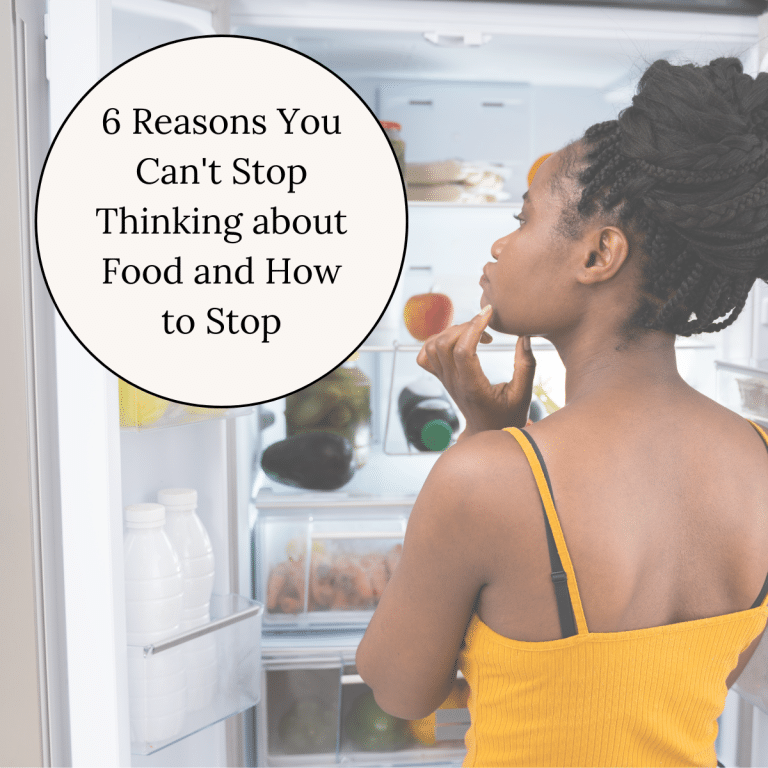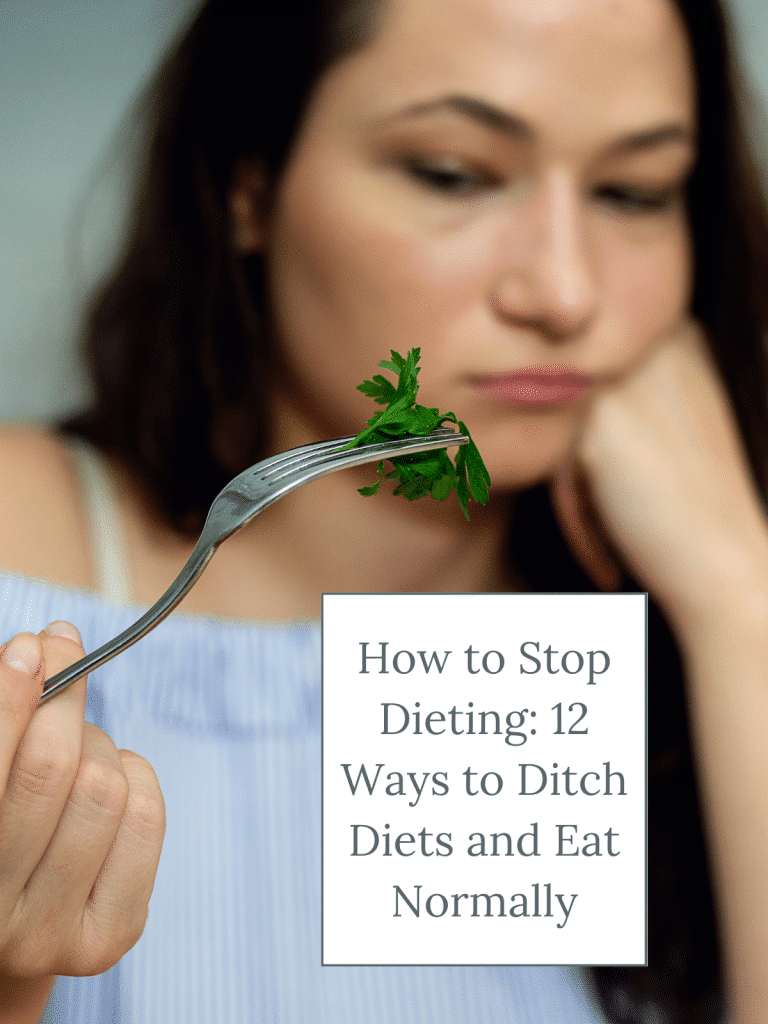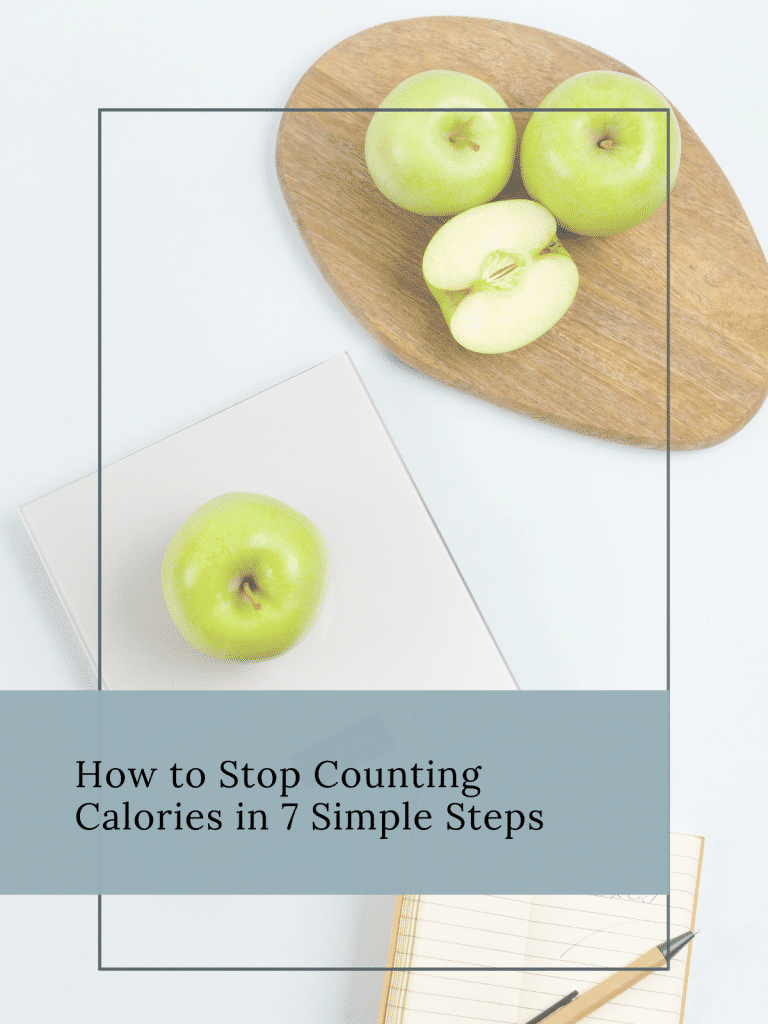How to Stop Snacking All the Time: Your Complete Guide
Do you find yourself reaching for snacks frequently during the day? If so, you may be wondering how to stop snacking.
It’s important to note that there is nothing inherently bad about snacking. Snacks can be a wonderful opportunity to add important nutrients to your diet and can improve energy throughout the day.
However, snacking on and off all day may not support your goals, can feel uncomfortable, or might keep you thinking about food all the time. If that’s the case, it may be worth investigating why you’re always snacking.
Read on to learn about common reasons you may be snacking all the time, plus tips for how to stop snacking so much.
Reasons You Might Be Snacking All the Time
Before you learn how to stop snacking, it’s important to understand why you may be snacking so much. Many of the reasons people can’t stop snacking are related to inadequate nutrition or lack of satisfaction.

You’re skipping breakfast
Many people skip breakfast as a way to cut calories and lose weight, yet studies actually show that breakfast-skipping is associated with eating more calories, fats, and sugars at lunch, dinner, and snacks.
Studies also show that people who skipped breakfast had higher blood sugars after lunch than those who ate breakfast (even those who didn’t have diabetes).
Spikes and crashes in your blood sugar can increase sugar and carb cravings, which may contribute to excess snacking.
Inside The UNDIET Method, I’ve helped hundreds of women who skip (or skimp on) breakfast, and end up over compensating later in the day finally support their body and stop the out of control snacking.
While there’s nothing wrong with eating high-calorie, high-fat, or high-sugar foods, eating them too frequently could cause you to feel unwell, struggle with energy levels, or feel out of control around foods.
You’re not eating enough at meals
Diet culture tells us that to be healthy, we should eat less or eat as little as possible. Even if you’re not on a diet, you may find yourself only eating until you’re not hungry anymore instead of eating until you’re full.
How can you tell once you’re full? Some people find it useful to use a hunger-fullness scale from zero to ten, with zero being dizzy/nauseous/ravenous, five being neutral, and ten being physically ill from being too full. On such a scale, you’ll ideally eat something when you’re around a three and stop eating around a seven.
Some physical signs of being full include:
- Feeling pressure in your belly
- Food doesn’t taste as good as it did when you first started eating
- No longer feeling the signs of hunger (like stomach growling, low energy, shakiness, headaches, and trouble focusing)
This is not meant to restrict your intake but rather act as a way to listen to your body’s cues so that you can provide it with the fuel it needs throughout the day.
You’re not eating balanced meals
Even if you’re eating enough, you may find that if your meals are not nutritionally balanced, you find yourself reaching for many snacks throughout the day.
Diet culture often tells us to restrict certain macronutrients, like carbohydrates and fat. However, if our meals do not contain a balance of protein, carbohydrates, and fat, they won’t keep us satisfied for long.
For example, maybe for lunch, you had a salad that contained vegetables and grilled chicken. You’ve been trying to avoid carbohydrates and added fat because you heard it can help you lose weight. However, you find yourself snacking all afternoon.
This is an indication that your meal wasn’t well-balanced (or, in this case, enough calories either!). By adding some carbohydrates and fat to the meal, you will feel more satisfied and fuller for longer, and less likely to graze throughout the afternoon.
Your meals aren’t satisfying
One of the biggest signs that your meal or snack wasn’t satisfying is if you’re physically full but still reaching for food, usually in the form of sweet or salty snacks.
Diet culture can put a serious damper on the eating experience, leading to decreased satisfaction from eating. This can lead to grazing throughout the day in an attempt to satisfy yourself.
Satisfaction is often considered the “hub” of intuitive eating and is just as important as eating enough and eating balanced meals.
If you’ve been dieting for a long time, you may have forgotten what it’s like to feel satisfaction after eating. Here are some tips for tuning into your internal satisfaction cues:
- Ask yourself what you truly want to eat. What texture or flavor are you craving?
- Reflect on your favorite foods. What do you like about them?
- Don’t underestimate the power of a calm and peaceful eating environment. Minimize distractions by turning off the TV and putting down your phone and pay attention to how the food makes you feel.
- Slow down. Give yourself at least 15 minutes to enjoy it.
- Check in throughout the meal. Ask yourself: does it still taste good? Do you want more, or are you satisfied?
By tuning into your satisfaction cues, you’re more likely to truly enjoy the food, which can lead to decreased snacking later in the day.
You’re using snacking to meet an unmet emotional need
There’s nothing wrong with emotional eating (it’s completely normal and almost everybody does it), but if eating is your only tool for coping with difficult emotions, it could be a sign you need to develop some new coping tools.
If you find yourself constantly snacking throughout the day, get curious about why you’re eating. Are you bored? Stressed? Anxious?
Your snacks are too small or not well-balanced
Just as not eating enough or not balancing your meals can lead to grazing throughout the day, having snacks that do not provide enough fuel or a balance of nutrients can increase snacking.
Diet culture often tells us that our snacks need to be small (think 100-calorie “snack packs”), but this may not be enough to actually fill you up between meals. If you find yourself snacking often throughout the day, you may need to make your planned snacks larger.
How to Stop Snacking So Much
Now that you understand why grazing and excessive snacking happen, it’s time to learn how to stop snacking so much. Remember, there’s nothing wrong with snacking. However, if you’re snacking all day long or feel like you’re eating more than you need to, it may be worth incorporating some of the following tips.

Eat a balanced breakfast that includes protein
Eating breakfast is important because it provides your body with much-needed fuel after fasting (i.e., not eating) overnight.
You may not feel hungry in the morning if you’re not used to eating breakfast. If this is the case, start by adding something small within 1-2 hours of waking up. Eventually your hunger will return in the morning (this is a good thing!).
To ensure your breakfast keeps you satiated and your blood sugars stable, include a source of protein, such as eggs, milk, yogurt, cheese, nuts, or seeds. Protein slows down the entry of sugar into your blood and prevents your blood sugar from spiking too high after you eat. This can lead to better energy levels throughout the day.
Here are some high-protein breakfast ideas to get you started:
- Breakfast taco casserole
- High-protein cherry vanilla smoothie
- Strawberry cheesecake overnight oats
- Banana bread chickpea smoothie
- High-protein baked oatmeal
- Dark chocolate chia pudding
- Apple pie overnight oats
- Greek yogurt with fruit, granola, and nuts/seeds
- Scrambled eggs with tomatoes, peppers, and cheese served with toast
- Breakfast wrap made with scrambled eggs, black beans, and vegetables
- Cottage cheese with fruit and toast
Eat at regular intervals
Your body needs a certain amount of energy (calories) each day to function and thrive. If you’re skipping meals, you may not get the nutrition you need, leading to cravings later in the day.
While you don’t need to eat at the same time every day, a good rule of thumb is to try to eat something every three to four hours. If it’s not time for a meal, try including a planned snack to tide you over until it is mealtime.
You might be wondering why eating something more frequently than every three to four hours isn’t recommended. A large part of why it’s not ideal to eat more often than this is due to something called the migrating motor complex (MMC).
The MMC is an important part of normal digestion and is an electrochemical wave of muscle contractions that sweeps away undigested food in your gut. When you eat too frequently, this “housekeeper” wave cannot do its job, which could lead to bloating or other digestive symptoms for some people.
Make sure meals contain protein, fiber-rich carbohydrates, and fat
Just as your body needs a certain amount of energy (calories) daily, it also needs a balance of protein, fiber-rich carbohydrates, and fat. If you’re missing one of these macronutrients at a meal (for example, if you’re limiting carbohydrates), you may find yourself reaching for multiple snacks between meals.
Try to include a balance of protein, fiber-rich carbohydrates, and fat at meals to ensure that you’re giving your body everything it needs to stay satiated and energized.
Here are some examples of how to take an unbalanced meal and make it more balanced:
| Unbalanced Meal | Balanced Meal |
| Plain salad with chicken breast | Salad with vegetables, chicken breast, avocado or nuts, topped with cooked quinoa or farro plus dressing |
| Pasta | Pasta with tomato sauce and chickpeas or ground turkey, topped with Parmesan cheese. |
| Pizza | Pizza with a side salad |
| Toast with jam | Toast with peanut butter topped with banana and hemp seeds |
| Yogurt | Yogurt with fruit, granola, and nuts |
Make sure your snacks are well-balanced
Balancing your snacks is just as important as balancing your meals, and it’s best to try and include at least two of the three macronutrients (protein, carbohydrates, and fat) when building your snack.
Here are some tips for making snacks more filling and satisfying:
- Add some cheese to crackers
- Dip raw vegetables in hummus
- Eat fruit with yogurt or nuts
- Add a spoonful of peanut butter to your fruit smoothie
For more ideas read How to Build a Balanced Snack + 40 Snack Ideas
Build tools to manage stress and cope with emotions
Stress happens to everyone, and while eating can be one way of coping, it’s important to learn how to manage stress or other emotions without turning to food.
Here are some coping tools that don’t involve eating:
- Going for a walk
- Reading a book
- Listening to music
- Taking a bath
- Calling a friend
- Drinking a cup of tea
- Meditating
- Deep breathing
- Journaling
- Coloring
- Knitting or crocheting
Once you’ve identified the unmet emotional need, you can choose a coping tool that will help meet that need.
How to Stop Snacking at Night
Many tips to help you stop snacking at night are the same as tips that can help you stop snacking in general. But there are a few additional things to consider as you learn how to stop snacking at night.
Eat enough during the day
If you don’t eat enough during the day, you may find yourself raiding the pantry after dinner. If this is the case for you, ensure you get at least three meals daily. Make sure you have a source of protein, carbs, and fat at those meals.
If you’re still struggling with snacking after dinner after including three meals, try adding one to three planned snacks throughout the day to ensure your body is getting all the nutrients it needs.
Get curious about whether night snacking is a habit
For many people, relaxing in front of the TV with a bag of chips or a bowl of ice cream is a habit. While snacking at night can be part of a healthy lifestyle, it’s important to consider your reasons for snacking at night.
The next time you find yourself snacking at night, ask yourself whether you’re truly hungry or simply snacking out of habit. If it’s a habit and not hunger, try replacing the habit with something else (such as stretching while you watch TV).
Final Thoughts
There’s nothing inherently bad about snacking, and having regular, planned snacks throughout the day can be a great way to ensure you’re getting the nutrients you need.
But if grazing throughout the day is causing you to feel uncomfortable or is interfering with your health goals, the above tips can help you understand how to stop snacking.
Not sure how to plan balanced meals and snacks into your day? Not sure what is causing your snack attacks?
Inside The UNDIET Method you will identify exactly what’s causing you to snack all the time (and feel out of control) and how to stop this frustrating behavior! Without willpower.







This article is so useful. I eat healthy but fearing to eat carbs and certain foods like cheese and fats. I really incorporate good foods into my diet like almond milk, flaxseed, and other seeds, fats like nuts and veggies. I fear eating fruits and my fruits go bad in the fridge. Yes a fear for the carbs. Im healthy and healthy weight and active too. This is fear of getting sick and its all about fear.
I snack things like Makkana, which is the lotus seed known to be a fibre filled healthy snack and little portions of fruits that does not add up to my daily portions of fruit.
Any advice ?
Hi Pat! Glad you found my article helpful. I’m so sorry to hear you’re struggling with a fear of carbs and other foods. My advice would be to find some support to help you work through your fears around carbs, fruit, and other foods if this is impacting your quality of life, mental health, or even physical health. If you’d like our support, feel free to book a discovery call to discuss how we can help. Wishing you the best!